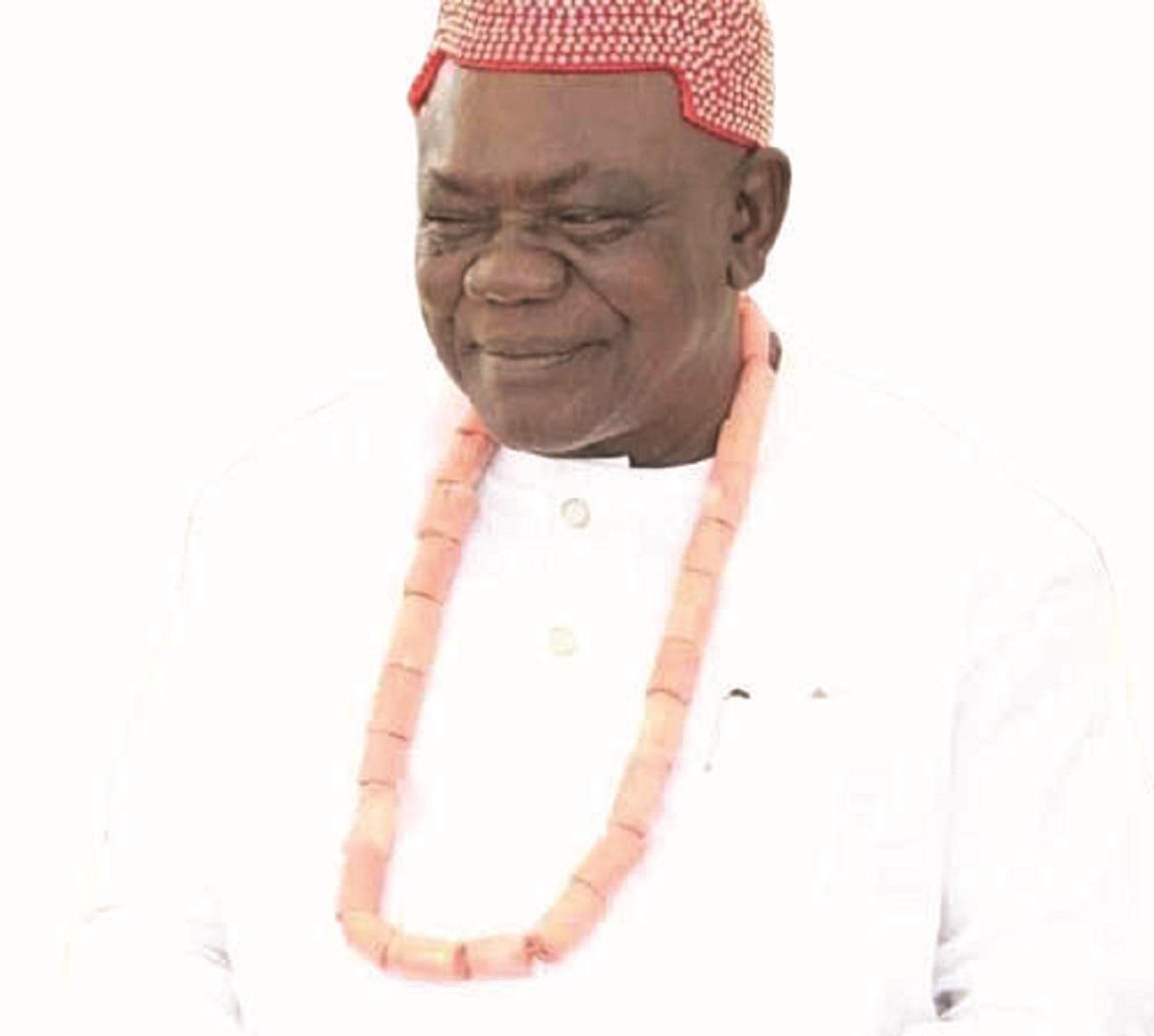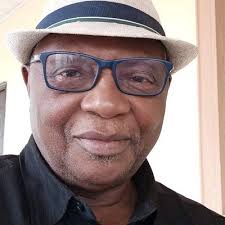 |
| Mbanefo Michael Ogbolu, elected Ugo- Ani in 2014. |
Development enthusiasts have been fascinated about how institutions have evolved over the centuries. In the absence of well documented records, empiricism has bridged the gap. The emergence of the Ugo-Ani institution, which is the baby leadership institution in Okpanam city will give us an idea of how our ancestors organized themselves and their relationships in the past. Before we go deep into the establishment of the Ugo-Ani institution, let us just touch base on a few ideologies about how societies all over the world have evolved their leadership institutions.
Social Contract Perspective: One very popular theory of social establishment is that leadership institutions are the collective bodies or organisms created to facilitate cordial co-existence amongst inhabitants of any space by the agreement of the majority, if not all the people who live in that area. This thinking stems from the theoretical works of thinkers like Hobbes, Locke, and Rousseau who argued, in different ways, that institutions arise from an agreement among people to cooperate for their mutual benefit: safety, economic well-being, happiness etc. In their view, institutions emerge as a way to structure social interactions and protect individual rights within that community so that the strong does not trample on the weak.
 |
 |
| Tonye Ofuani involved in the formation of UgoAni institution |
The emergence of the Ugo-Ani institution stems from this model of interaction. It was muted by prominent individuals and pursued by the Okpanam Community Development Union of Nigeria (OCDUN) and concerned indigenes living in foreign countries. Tonye Ofuani, former Managing Director of Fedex was one of the prominent movers of this idea and made several trips between Okpanam and his base in Lagos pursuant to the establishment of this new institution. There were numerous interactions between the new movement for a new leadership structure and the Diokpa in Council. I will provide a detailed list of those who championed the establishment of the Ugo-Ani office in another article. For now, it is sufficient to say that there was nothing like Ugo-Ani in Okpanam thirty (30) years ago. The concept only lived in the fertile imagination of a few who pushed for its creation.
 | |
| Ogbueshi Azum Azuka Asoya one of the contestants for the office of Ugo-Ani |
Functionalism offers a theoretical framework in sociology that views society as a complex system of interconnected parts, each serving a specific purpose to maintain social equilibrium. Economic institutions, for example, emerge to fulfill essential societal needs, such as socializing new members and transmitting knowledge. They also foster social integration, maintain social stability, and emphasize interdependence. Functionalist theory acknowledges that institutions must adapt to changing circumstances and have both manifest and latent functions. However, dysfunction can occur when institutions fail to meet societal needs or become harmful, leading to social strain and potential change. When this happens, there are agitations for change or reformation. I have heard a few people mute the idea of the scrapping of the Ugo-Ani position. Whereas it is true that those who created the office have the power to dismantle it, there is the legal hurdle which has brought the office into official recognition as reflecting the wish of the people of Okpanam. Not only is the process long and tedious, I sincerely think it is unnecessary at this point. A lesser approach should be to review the office and honestly assess whether the office holders are satisfying the purpose for which it is established. If it is not, then I would recommend a reformation, not an abolition.
Structuralist Perspective: In this perspective, influenced by Lévi-Strauss, students of history look at how underlying social structures impact institutions. In this view, institutions are seen as mere mirrors of the fundamental patterns of cognition and organisation within a society. It is the social interactions, those who hold this view believe, that coalesces into the prominent institutions of the society. Therefore the stronger forces emerge as the predominant threads but the less forceful currents keep floating in the shadows.
Structuralism, a distinct viewpoint in anthropology, focuses on underlying patterns in social customs and institutions. It emphasizes binary oppositions, relational meaning, unconscious structures, synchronic analysis, cultural universals, and language as a model. Structuralists analyze local kinship systems, mythological analysis, spatial organization, social hierarchies, rituals, and ceremonies to uncover broader cognitive categories and underlying patterns linking local groups with themselves or with others outside the social dyad. For instance, they examine the impact of colonial institutions on social organization and the role of language in encoding social relationships and institutions. This approach offers a different lens for understanding community formation, contrasting functionalism's focus on meeting social needs and the hidden logic and patterns underlying these institutions. Claude Lévi-Strauss's work provides a unique perspective on understanding community formation. It is important to note that this is not an exclusive or a singularly deterministic factor in a valid analysis of social formations but it gives an idea of how some aspects of some apparently contradictory social patterns and institutions may have emerged in history. More importantly, it provides a frame for understanding how alternatives patterns may in future emerge.
The last perspective we want to consider is the Symbolic interactionism developed by Mead and Blumer, which focuses on how individuals build and sustain institutions via shared meanings and social interactions. Institutions are viewed as dynamic constructions that change via continuous negotiations.
Symbolic interactionism, developed by George Herbert Mead and Herbert Blumer, is a micro-level analysis of how individuals create, maintain, and transform social institutions through daily interactions. This approach emphasizes the role of symbols, particularly language, in shaping social reality, role-taking, self-concept, negotiated order, and individual agency in shaping institutions. It can be applied to Okpanam or any other community by examining how community members interpret and negotiate roles of traditional leaders, market interactions, religious practices, education, family structures, linguistic diversity, cultural festivals, colonial and post-colonial institutions, intergenerational dynamics, and conflict resolution mechanisms. Symbolic interactionism offers a dynamic view of institutions in community formation, revealing how seemingly minor interactions and interpretations lead to significant institutional changes over time. However, it has been criticized for potentially overlooking larger structural forces that constrain individual actions. In other words, although forceful and over-arching individuals can influence trends, they are not the sole possible element that determines how societies evolved.
Notwithstanding how institutions may have emerged, they play crucial roles in community formation, providing structure, establishing norms, facilitating cooperation, resolving conflicts, preserving knowledge, and adapting to change. They provide a framework for social organization, defining roles and responsibilities, and fostering a shared cultural foundation. They also facilitate collective action and resource allocation, ensuring a strong and resilient community.
 | ||
| Dr. Sylvanus Olise Ebigwei, another contestant to the office of the Ugo-Ani |
Mbanefo Ogbolu was elected from a list of distinguished Obodogba contestants that included: late Major Azum Hippolytus Asoya, the late Dr. Sylvan Ebigwei and a few others.
So the Ugo-ani as an institution is just fourteen years and has faced teething problems, prime of which is that of legitimacy.
Legality and Legitimacy of the Ugo-Ani
In the past ten years or so, the Council of elders associated with the office of the Ugo-Ani have been having a legitimacy battle following their interpretation of their role as opposed to the older institutions in the town. This has led to brushes with the institutions of Obiship, Omu, and Diokpa-Isi.
Ugo Ani institution was created based on the widest possible consultations and approvals from diverse interest groups. In a simple manner of speaking, the Ugo-Ani office is a baby of the other social organisations in the town and was created to fill some gaps:
- There was the observation that the traditional head of the town, the Diokpa-Isi and his Council was often composed of very old men. As with aging, many of them become senile and are no longer able to remember nor participate actively in the socio-political activities of the community and the local government. Tonye Ofuani and Prof Chris Ogbechie amongst others moved for a reformation of the leadership system to infuse some youth and dynamism into the elite rank of leadership. No one who was above sixty years was considered a suitable candidate even though many who contested were over sixty at the time they showed interest.
- For a very long time, those who became Diokpa-Isi were people who had little or no education. Consequently the Diokpa-Isi who was limited by the lack of education was a liability to the City. In a forum composed of Ibusa leadership led by a retired Professor and Asaba, under the leadership of Asagba Professor Chike Edozien, most progressives felt the time had come to also produce educated leaders who could be a worthy representatives of the town in elite traditional circles. It was expected that this would also influence the record keeping functions of the town and lead to a centralized and more accessible data base of activities in the town.
- Finally, Okpanam was a dyad in the tripod that was made the Delta State capital territory. Advocates of a new structure felt that there was so much going on in the struggle for resources and the attraction of development. Consequently, it was felt that in order to get the town to play a competitive role in the geopolitical activities of the State, an influential leadership with some clout was required to attract development to the town.
 |
| Hon. Emeka Nmadu was Secretary UgoAni selection Committee. |
It was this situation that led to the formation of the Ugo-Ani institution as a direct replacement of the Asagba. Hon Emeka Nmadu of blessed memory told me repeatedly how, as Secretary of the Ugo-Ani selection Committee, Mbanefo Michael Ogbolu emerged as the Ugo-Ani. Perhaps, some day we would discuss the intrigues and politics that made him Ugo-Ani. Suffice to say that this did not come easy. It came with bitterness and recriminations. The old order fought back but the popular will of the people prevailed.
Unfortunately, the Ugo-Ani institution has been embroiled in power tussle with the Council of Obi, the Omu and other traditional institutions, in my opinion, in an avoidable distraction. Being the baby institution it is, it is a creation of the popular will of the people and should not be seen as trying to destroy the institutions that created it. The bird Nza according to Chinua Achebe once "forgot himself after a heavy meal that he challenged his chi" to a wrestling match. I hope the Ugo-Ani does not do that. Recognition by government is not legitimacy. You can have a legal government that is not legitimate.
In another article, I will be detailing the issues that seem to be bringing conflict in the inter-institutional relationships and to offer suggestions on how they can be solved.

Comments
Post a Comment